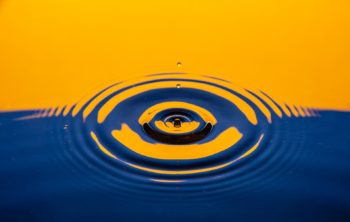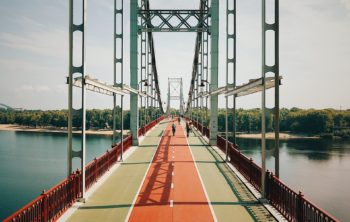I did 72 hour water fast and this is what the experience revealed to me
Along with the collective uncertainty that we all face: wondering when things will go back to normal, or what the new normal will even look like, what the economic impact will be in the long run and how that will effect our employment status in the near future, we all have our own individual hurdles that we are facing due to the current situation.
Covid-Quarantine has really dug out the plaque that has been plastered in the inner depths of my psyche, much of it self-worth related. The lack of physical activity, novel stimulation, physical presence of interpersonal relationships, and just not having the freedom of being out in the world, has really added an extra weight to the impact of what I think are common emotions many of us have been battling: fear, anger, apathy, guilt and grief. For me, these emotions have been transmuting themselves into varying levels of anxiety, and as the cup fills, it manages to trickle into my psychological netting, affecting my overall well-being.
If you’re like me, in times of unremarkable growth and emotional erraticism I turn to uplifting podcasts, read quotes on stoicism, listen to the Tao Te Ching , or s̶w̶e̶a̶t̶ ̶i̶t̶ ̶o̶u̶t̶ ̶a̶t̶ ̶t̶h̶e̶ ̶g̶y̶m̶. If you’re also like me, you might eat to the point where you’re so full it numbs you out and you don’t feel anything else. Okay — it’s not like that, but moderate levels of emotional eating certainly finds its way into my self-care routine. Not discounting that it’s okay to treat yourself, but there’s a fine line between occasional snacking to lift the spirits and eating to curb unwanted emotional states.
The Psychology of my Stress

Over the course of the last month or so, my relationship with food changed from a dynamic that promoted my physical health and performance, sated my passion for discovering amazing combinations of flavours and textures, and turned into a mechanical routine to fill up time spent being physically or mentally under-stimulated. This mechanical behaviour soon became habitual, and like all habits, dopamine release was happening. The following is anecdotal, but I believe that when my mechanical eating habit became solidified, the dosage of dopamine released in my brain wasn’t cutting it, and so the habit latched on in a more insidious way: by coupling itself with my wavering bouts of negative emotions. On a neuro-psychological level, eating found a neural pathway in my brain that would grant me a sense of productivity and also soothe me. On a psycho-emotional level, it minimized the lack of productivity I felt as well as mitigated the negative emotions I was feeling. The more I engaged in eating, the better I felt — a classic positive-feedback loop.
I hadn’t realized it until I found that my breathing was off while I was eating — the pace I was eating at was faster than usual. Going through my receipts, I had noticed that I had been ordering comfort food more often than I normally do. Physically, I felt more sluggish than I normally would be feeling — especially with the extra sleep I’ve been able to get. Something was off and I knew it — I was anxious-eating.
Some might ask, well what exactly are you anxious about? To that, I’d like to loosely paraphrase what Esther Perel said in her most recent podcast with Tim Ferriss “during this time of global crisis, if you say you’re doing fine, you’re kidding yourself. You’re not, and that’s okay!… It’s normal to be having difficulties during this time because there is no standard for navigating this world and adapting to a new normal.”
So I decided I would partake in a three day water fast and one day juice cleanse in order to reset my system and regain control over my gut-brain axis before this new habit established a deeper etching of long-term potentiation. Let me preface this with the fact that although I am familiar with intermittent fasting, the longest I’ve fasted for before this was thirty hours, and that was done in solidarity with friends. I’ve known about the positive effects of water fasting for a while now, and am familiar with the customs of fasting in some religious and spiritual practices, but only from an intellectual standpoint. I’ve never experienced it first hand.
During the Fast
The ground rules were: for the first 72 hours, I would only be able to have water, at the 72 hour mark I would partake in an additional 24 hours of consuming water and cold pressed juice. I kept a tally on hunger pangs as well as cravings, and also documented any fluctuations in my emotional state.
The tally of hunger pangs in the first 24 hours equated to 3 times — fairly unremarkable, but not surprising. What was surprising however was that there were another 11 times my body had almost acted instinctively to grab for food — not because I was feeling hungry, but because I was not doing anything else. Overall though, I’d have to say for the first 24–32 hours, my brain was sharp.
At the 36 hour mark, things started to get strange. I started getting cravings for foods high on the scale of savoury and sweet — foods heavy on the umami scale that would stimulate my senses. By now, my body was feeling weaker. I tried to do some push ups during the second day and my arms were wobbly, my body felt heavy and my brain foggy. For most of the day, I felt colder than usual — my body wasn’t generating as much body heat. This however was demarcated by small episodes of mental clarity and surges of energy — none of which I had expended because I wanted to conserve whatever energy I had on focusing at the task at hand. I engaged in some light stretching, breathing exercises, and played some video games. Speech and movement were markedly slower — something I rather appreciated.
By nightfall of day two, past the 50 hour mark, my cravings had moved from highly savoury foods to simpler foods — foodstuffs for the sake of sustenance. The tally for hunger pangs during the second day steadied out at 6 times, and my body’s response to act on grabbing for food for the sake of doing something had gone away.
The second night I found particularly difficult purely because my hunger had kept me up. What might sound like insanity however was that while I was struggling with insomnia, I spent my time perusing through social media’s #foodie feed. As amusing as this behaviour was to me, in actuality it didn’t surprise me all that much. What I was engaging in was the act of satisfying something called visual hunger “a natural desire, or urge, to look at food — potentially an evolutionary adaption: Our brains learnt to enjoy seeing food, since it would likely precede consumption” (Spence et al., 2016).
On the morning of day three my mind and body had entered a state of some sense of perceived peace. I’d have to say that the bodily experience itself was much like the calmness felt after a storm. My brain had already settled on the struggle for food as it knew that my mind was in control and eating was not going to happen regardless of the signals it sent. In the future, I’d like to revisit this state — I believe what I had was a momentary glimpse of is what many ascetic practices seek to achieve as they prepare their mind and body for a spiritual cleansing.
By the way, the first sip of cold pressed juice I had was glorious. Flavours were so much more potent — my body had absorbed the sugars from the juice almost immediately, replacing overall body weakness with a surge of energy that stayed with me for the next day.
So what exactly was the take away from this experience?
A conversation with my friend had illuminated in me that this fast was rewarding on multiple levels. It was mentally challenging for me — something that hasn’t been abundant for me during this time of quarantine. It’s a similar sense of mental challenge, something that can come at us from work, being social, or being out navigating the world. I think doing a fast during this time has left me feeling a variation of normalcy in the sense that I had the opportunity to access my own mental willpower — difficult to come by while staying at home and living in comfort (all things considered). There was also a sense of satisfaction from accomplishing something seemingly difficult — at the very least something that I’ve never successfully done before. Even more pertinent is that this fast gave me an opportunity to reclaim agency over myself, a powerful feeling, especially when so many variables are currently out of our hands.
The added benefit of doing this water fast was the mental clarity I achieved during and days after. Given the literature on religious and spiritual practices that engage in fasting as an activity to prepare the mind to move towards the esoteric, it’s now a no brainer to me. Prolonged food deprivation spurs introspection. By putting a secondary focus on my physical body, it pushed my thoughts and emotions to the forefront, forcing me to take ownership of my own feelings — something I believe many of us can benefit from.
After all this is done, will you come out with any new habits? What habits are you forming right now? Is it a coping mechanism for the time being? Will it add to your life when the world restarts?
“When the stomach is full, the intellect begins to sleep. Wisdom becomes mute and the parts of the body restrain from acts of righteousness.”
Luqman The Wise





No Responses